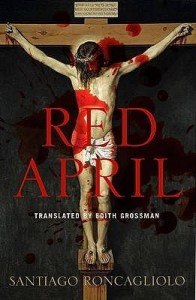 Title: The Unamericans (Goodreads)
Title: The Unamericans (Goodreads)
Author: Molly Antopol
Published: Atlantic Books, 2014
Pages: 261
Genres: Short Stories
My Copy: Library Book
Buy: Amazon, Book Depository, Kindle (or visit your local Indie bookstore)
The world of short stories has had a rocky history, but every now and then there are authors that make you excited about a collection of stories again. When I think about great short story collections, I think Raymond Carver with his book What We Talk About When We Talk about Love, George Sanders (especially his recent collection Tenth of December) and now Molly Antopol with her debut collection The UnAmericans. Even I have to admit that I have often struggled with short stories but then something like The UnAmericans comes along and I feel ready to take on more collections.
Molly Antopol is a lecturer at Stanford University where she teaches as part of their writing program. In 2013, she was one of the recipients of the “5 Under 35” award from the National Book Foundation, which highlights five young writers to watch and she has been someone well worth watching. Her debut, The UnAmericans was nominated for countless awards including the National Jewish Book Award and the National Book Award. Though her collection of short stories did not take home any major awards, this is the start of a very promising career for Molly Antopol and is someone I plan to follow closely.
The UnAmericans is a collection full of stories about families, heritage, identity and all the things that define us as humans. With a strong focus on immigration this book is a post 9/11 exploration into America. Exploring the lives of all those people that might have felt excluded as American due to difference in heritage, skin colour, religion, and political or moral beliefs. While it does not typically focus on America or events post 9/11, it is the kind of story that could have only been told after a tragedy like that day.
Each character is richly developed, coming from places like Kiev, Prague, Tel Avid and Soviet Moscow, the stories all explore the same similar themes but in away that never feels repetitive or preachy. Antopol appears to be interested in exploring peoples differences and similarities and trying to get the message across that we are all the same. All the different places these people live in and they all want the very same things, love and acceptance. While their heritage often plays a big part in their identity it doesn’t make them UnAmerican; we are all humans.
I was extremely impressed and it made me want to read more short stories; if Molly Antopol can give so much depth into her characters as she did in The UnAmericans then it makes me excited for the rest of the genre. I did go on to read another collection of short stories right after this one, this time it was by Charlotte Perkins Gilman. I hate to say it; The UnAmericans was great but then going on to read The Yellow Wallpaper and Other Stories, changed everything yet again.

 Title: Red April (
Title: Red April (